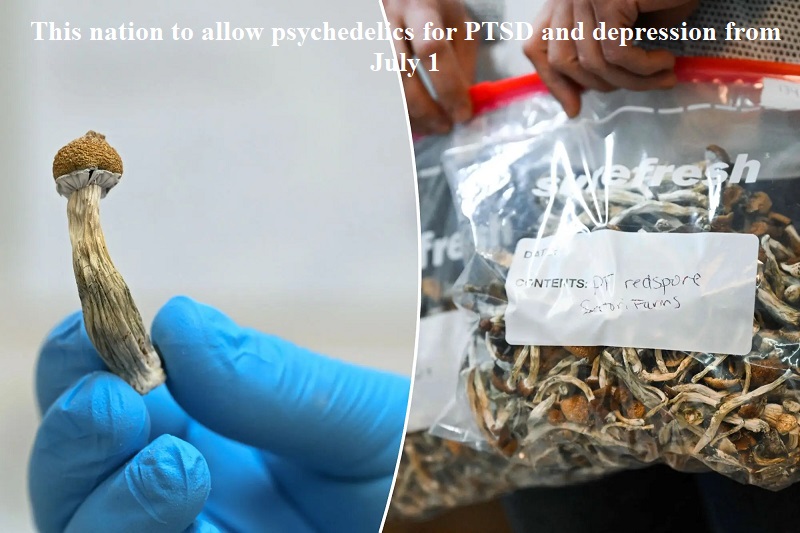
Starting on July 1st, Australia will become the first country in the world to permit doctors to prescribe MDMA and magic mushrooms for the treatment of psychiatric conditions such as depression and Post-Traumatic Stress Disorder (PTSD). Although the decision was made in February of this year, it remains a contentious move.
The Therapeutic Goods Administration (TGA), Australia’s regulatory body for drugs, has approved this measure after a three-year process that involved extensive consultations with experts.
Psychedelic drugs have long been believed to have the potential to treat mental health conditions, but due to stigma, governments have traditionally taken a reactionary stance. The Australian experiment will be closely observed worldwide and could establish a precedent for other countries to follow.
MDMA, a synthetic drug commonly associated with rave parties and known as “molly” or “ecstasy,” and magic mushrooms, which contain the active compound psilocybin and provide users with a hallucinogenic experience, are currently classified as prohibited substances. They can only be used in tightly controlled clinical trials.
Advocates hope that these drugs will one day be used to treat eating disorders, alcohol dependence, and obsessive-compulsive disorder.
However, while there is a strong lobby advocating for the legalization of both synthetic and natural hard drugs, some critics express concerns that research has not yet determined which patients are best suited for these treatments.
Susan Rossell, a psychiatrist at Swinburne University of Technology in Melbourne, warned that the drugs are not suitable for everyone. She emphasized the need to identify individuals who may have negative experiences and not recommend the treatment to them. In her study on psilocybin-assisted psychotherapy for treatment-resistant depression, she found that 10 to 20 percent of participants who received psychedelic drugs had extremely negative experiences. She fears that if not administered properly, the drugs could lead to distressing trips and potentially make individuals more susceptible to psychological issues.
Rossell and her colleagues questioned the TGA’s decision by co-authoring a report in May. They inquired why the TGA did not consult them, considering their rare experience in administering psilocybin for depression treatment. The report suggested that the TGA yielded to pressure from the public and lobby groups to expand access to these experimental treatments outside of clinical trials. The authors argued that there is not yet enough evidence to justify broad-scale implementation of these treatments.

Post Your Comments